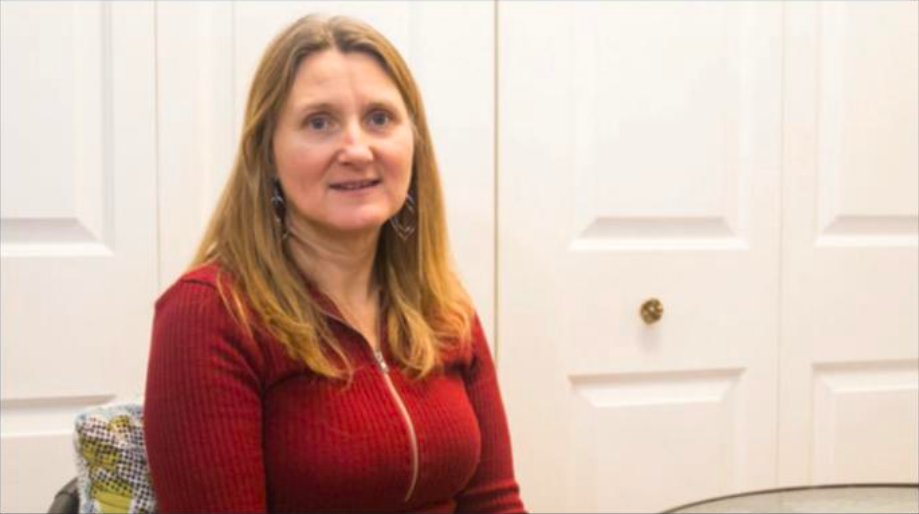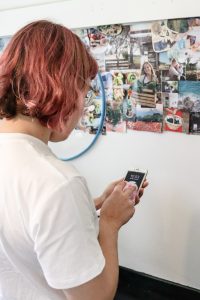
As social distancing becomes common practice, women in abusive relationships are more at risk of experiencing abuse by their partners.
As self-isolation means staying with friends or family is less of an option for those fleeing domestic abuse, the women’s shelter provides an important service during these uncertain times.
Extended periods in close quarters with no end in sight, the self-isolation period recommended to reduce the COVID-19 outbreak increases the risk for those who were in domestic abuse situations before.
“Abuse is about power and control,” executive director Lynn Loeppky said. “When we are all lacking this during this unusual time in our life, those in a domestic abuse situations may find themselves feeling the brunt of that and even more restricted and on edge.”
The Revelstoke Women’s Shelter Society is staying open during this period to be a safe haven should any situations flare up. Social distancing means women and their children may no longer be able to rely on friends and family and they may feel less inclined to reach out to health services who are expected to become busy.

For Lynn Loeppky, Executive Director of the Revelstoke Women’s Shelter, the safety and wellbeing of its staff and the people it serves is the utmost priority.
The shelter is working with B.C. Housing, the Ministry of Health and numerous other partners in navigating their operations during this time. Potential clients will be screened first over the telephone before coming in person and the shelter is prioritising local clients to reduce the potential of outside travellers.
“At this time our utmost priority is the safety and wellbeing of our clients and staff, so we are taking every precaution to ensure that our services reflect this,” Loeppky said.
Any woman (and her children) needing to access the shelter’s services is encouraged to call the 24-hour crisis line: 250-837-1111.
Getting creative to offer support
They say out of necessity comes innovation. As a result of the COVID-19 measures, the shelter’s outreach program coordinators have had to re-think the ways in which they offer support to the community members they serve, many of whom are vulnerable and socially isolated as it is.
While in-person programming is postponed until further notice, Taha Attiah, the Moving Mountains men’s outreach program coordinator, is determined to continue to provide the support to those who need it. Group meet-ups and one-on-one support will take place online over video, or over the phone.
“The humour and laughter I heard during our first phone meet up was something I didn’t realize was missing from daily life until I tried it,” he said.
If you, or someone you know is isolated and in need of mental or emotional support, please get in touch: 250 837 1572 or movingmountainss@telus.net.

Photo by U2GqTMLGRi8 via Even though we are being asked to social distance ourselves from one another, it’s important that we stay connected to each other during this time.
For Anneliese Neweduk, program coordinator for the Moving Forward women’s outreach program, the current situation provides innovative opportunities for people to connect. Technology makes it possible for people to stay connected to one another through group teleconferencing, email, phone, video and text chat, and more.
“It is important for our community to understand that social distancing and social connectedness can coexist,” she says. “I want the Moving Forward community, any anyone else feeling the burden of COIVD-19 to know that I am here, and that their community supports them.”
You can reach her at 250 814 8387, or movingforward@telus.net.
Supporting our most vulnerable
The recent outpouring of offers to help our community’s vulnerable adults, including seniors and immune-compromised individuals, has spurred a new initiative by the Revelstoke Community Response Network (CRN).
According to Lisa Cyr, coordinator for the CRN, COVID-19 has seen the community offer their help to this community’s most vulnerable people who are in need of essential goods such as food, medication and other supplies.
“Almost over night, 50 volunteers have stepped up to help with shopping, pick ups and deliveries. It’s been really amazing to see the community rally to support those who need it most in this time, and the concern they have for their wellbeing,” she says.
The CRN, is a project that offers education and prevention activities around abuse and neglect of older and vulnerable adults. The committee, which is comprised of local service providing agencies including RCMP and Victim Services, Community Paramedics, Interior Health, and more, works together to create coordinated community responses to issues faced by vulnerable adults.
Reducing loneliness and social isolation however, could possibility be the biggest need for vulnerable adults. The CRN, Moving Mountains and Moving Forward will be working together with the help of volunteers to offer mental and emotional support during these exceptional times. “Keeping those existing groups together, as well as creating new connections with volunteer supports will be a source of comfort and normalcy as we move forward,” explains Attiah.
The hope is that over time, interest and support in helping these people will also continue, long after the threat of the virus has left. If you are interested in helping, or if you know a vulnerable adult in need of support, please email revycrn@gmail.com.